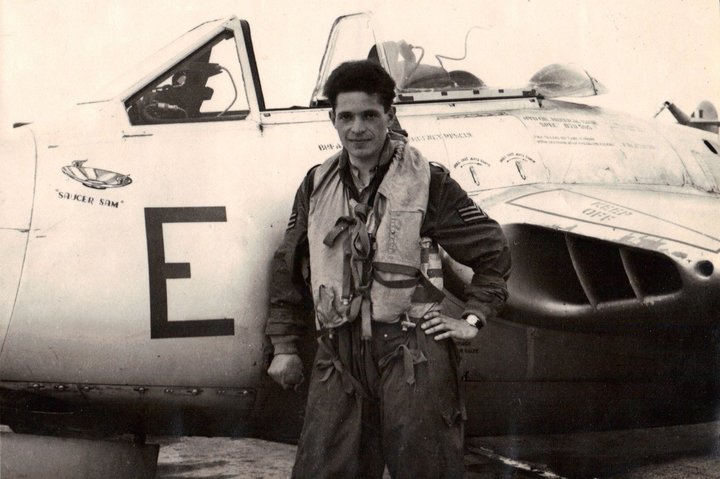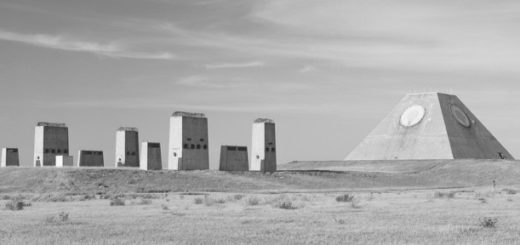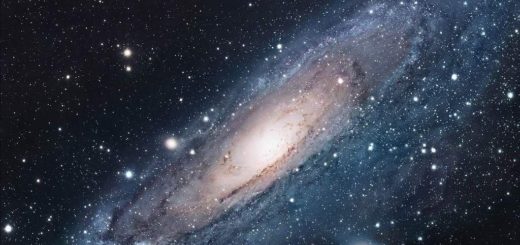UFO Sighting In 1952 Kicked Off Britain’s Behind-The-Scenes Flying Saucer Debate

When Queen Elizabeth II, who recently celebrated her Diamond Jubilee marking her 60-year reign in Great Britain, took the throne in 1952, another subject was also causing a bit of a buzz on both sides of the Atlantic — UFOs.
In fact, Britain’s former prime minister, Winston Churchill, became very curious about the subject after sightings on two consecutive weekends in July 1952, when unidentified objects flew in the restricted air above the White House and the Capitol building in Washington, D.C. They were seen by more than one radar facility and by Air Force jet fighter pilots who were scrambled to investigate the incidents.
While the Air Force eventually quieted growing public concern about these events by claiming the objects were nothing more than temperature inversions, Churchill sent a now-famous memo on July 28, 1952, to Lord Cherwell, Britain’s Secretary of State for Air.
In the brief note, seen below, Churchill asked: “What does all this stuff about flying saucers amount to? What can it mean? What is the truth? Let me have a report at your convenience.”
“I would say that the skeptics in the British establishment would have included Lord Cherwell and one believer would have been Lord Dowding,” said Nick Pope, who ran the Ministry of Defense’s UFO Project between 1991 and 1994.
On his website, Pope references a piece written by Dowding in the July 11, 1954, edition of the Sunday Dispatch:
“I am convinced that these objects do exist and that they are not manufactured by any nation on Earth,” Dowding wrote. “I can therefore see no alternative to accepting the theory that they come from some extraterrestrial source.”
The response to Churchill’s UFO memo was that a previous study had concluded the flying saucers were most likely something easily explained, like birds, balloons, optical illusions, conventional aircraft and hoaxes.
But those explanations didn’t seem to hold up against the story of a Royal Air Force fighter pilot whose dramatic UFO encounter took place just two days after Churchill’s original memo seeking accurate UFO information.
On July 30, 1952, while the U.S. Air Force and the public were still coming to grips with the UFO activity over Washington, Flight Sgt. Roland Hughes was engaged in a training flight over West Germany.
Hughes reported he was intercepted by what he described as a “gleaming silver, metallic disc” that paced his jet before accelerating away. What lended credibility to this case was that ground-based military radar tracked the UFO flying at impossible speeds.
Hughes eventually told his story to Duncan Sandys, the U.K.’s aviation minister, seen below, who completely believed the pilot’s story.
This, according to Pope, began a behind-the-scenes UFO debate between British officials.
“You had this ‘perfect storm’ of a reliable witness and the radar evidence that backed it up,” said Pope.
“After Hughes made his post-flight report, it got kicked up the chain of command and he was sent to see Sandys, who didn’t go so far as to say it was extraterrestrial, but he used this case as sort of ammunition in the ongoing debate,” Pope told The Huffington Post.
The documents which detail the pilot’s encounter and subsequent communications between officials were found by David Clarke, a media law and journalism instructor at Sheffield Hallam University, who is also the official consultant for the British National Archives.
“Roland Hughes died in 2009, but he told his story to his son, Brian, who has produced a very detailed account of what his father told him, which he passed on to me,” Clarke told HuffPost.
“What we’ve got is a jigsaw puzzle with only about a third of the pieces,” added Clarke, whose book, “The UFO Files,” was published by the National Archives in 2009.
No other relevant documents about this UFO encounter have survived, which, according to Clarke, would have been produced by British Air Intelligence and the Royal Air Force.
“This was something that was seen by an RAF pilot over West Germany and at the height of the Cold War, when there was great tension between the East and the West. You would expect that any intelligence agency worth their salt would not want to ignore a story of this kind,” Clarke added.
David Clarke discusses why Winston Churchill might have covered up UFOs:
Clarke believes there was really no mystery about how Churchill felt about UFOs.
“Churchill was only interested in UFOs because the subject was constantly in the newspapers and there was so much interest in America, in Washington, D.C., where they had sightings in 1952.
“But the interesting thing is that, at the same time, there were a number of important people in the British establishment who had become convinced that UFOs existed, and one of them was Duncan Sandys, who was actually Churchill’s son-in-law at the time.”



 Creators of mankind
Creators of mankind Description of “Tall white aliens”
Description of “Tall white aliens” Where they came from?
Where they came from? About hostile civilizations
About hostile civilizations The war for the Earth
The war for the Earth “Tall white aliens” about eternal life
“Tall white aliens” about eternal life Video: “Nordic aliens”
Video: “Nordic aliens” Aliens
Aliens Alien encounters
Alien encounters The aliens base
The aliens base UFO
UFO Technology UFO
Technology UFO Underground civilization
Underground civilization Ancient alien artifacts
Ancient alien artifacts Military and UFO
Military and UFO Mysteries and hypotheses
Mysteries and hypotheses Scientific facts
Scientific facts


















